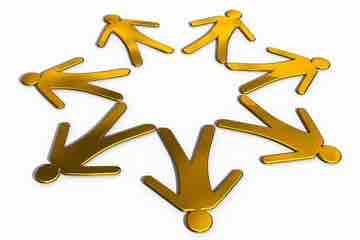Human resources is the set of individuals who make up the workforce of an organization, business sector, or an economy. "Human capital" is sometimes used synonymously with human resources, although human capital typically refers to a more narrow view (i.e., the knowledge the individuals embody and can contribute to an organization). Likewise, other terms sometimes used include "manpower," "talent," "labor," or simply "people. "
Human resources development (HRD) as a theory is a framework for the expansion of human capital within an organization through the development of both the organization and the individual to achieve performance improvement. Adam Smith states, "The capacities of individuals depended on their access to education. " The same statement applies to organizations themselves, but it requires a much broader field to cover both areas.
Human resource development is the integrated use of training, organization, and career development efforts to improve individual, group, and organizational effectiveness. HRD develops the key competencies that enable individuals in organizations to perform current and future jobs through planned learning activities. Groups within organizations use HRD to initiate and manage change. Also, HRD ensures a match between individual and organizational needs.
HRD as a process occurs within organizations and encapsulates:
- Training and development (TD), the development of human expertise for the purpose of improving performance
- Organization development (OD), empowering the organization to take advantage of its human resource capital.
TD alone can leave an organization unable to tap into the increase in human, knowledge, or talent capital. OD alone can result in an oppressed, under-realized workforce. HRD practicitioners find the interstices of win/win solutions that develop the employee and the organization in a mutually beneficial manner. HRD does not occur without the organization, so the practice of HRD within an organization is inhibited or promoted upon the platform of the organization's mission, vision, and values.

Human Resource
Human resource development combines training and career development to improve the effectiveness of the individual, group, and organization.